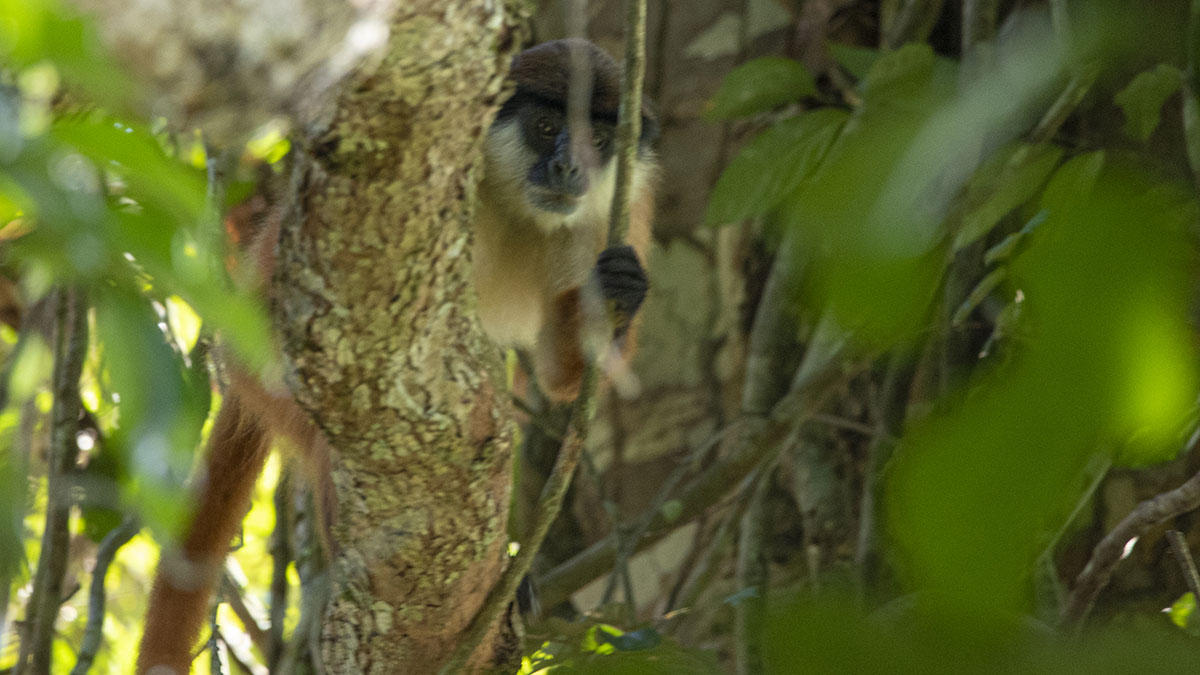We’ve been working to safeguard the Iberian lynx for many years, after threats like hunting and poaching drove it to the edge of extinction on the Iberian peninsula. The conservation efforts of WWF-Spain and many others are paying off with the latest census showing a huge increase in wild numbers over the past 20 years from just 94 individuals to over 1,100 lynxes. There is still a long way to go until the species is in really good shape, so our work alongside our partners continues – from creating new populations of lynx to increasing numbers of wild rabbits, its main prey.
In more good news, WWF conservationists recently captured the first-ever video footage of Bouvier’s red colobus, in the Republic of the Congo’s Ntokou Pikounda National Park. The monkey was thought to be extinct until recent years and remains on the endangered list – but this rare sighting is an inspiration to us all. Over the past three years, we’ve been supporting the government’s conservation efforts in the park, including working with local and Indigenous communities to find practical ways for them to manage this key forest habitat.


